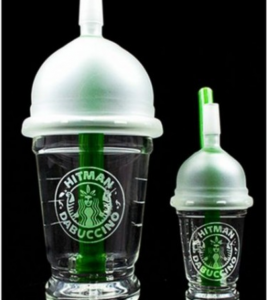By definition, trademark infringement is the unauthorized use of a mark on goods or services in a manner that is likely to cause confusion, deception, or mistake as to the source of the products. However, all trademarks are not created equal and stronger marks enjoy a broader scope of protection. In fact, trademark owners of U.S. registrations for strong marks may assert rights against confusingly similar and identical marks, for related and identical products. And, famous marks enjoy an even broader scope of protection and can be enforced against confusingly similar marks even as to unrelated products. In contrast, owners of weak marks are only able to enforce their rights against identical marks for identical goods and services.
Simply put, famous trademarks are in a category of their own, because they are household names that are more likely to be associated with a specific brand and remembered in the consuming public’s mind. Examples of famous trademarks are GOOGLE, NIKE, GATORADE, STARBUCKS, HERSHEY’S, and K-MART. Determining “fame” is not always clear, and this principal does not extend to marks that are merely well-known or only has “niche fame,” i.e., fame in a particular sector of goods/services. Factors considered in ascertaining whether a particular mark is famous include the volume of sales, duration of use, advertising expenditures, and lack of third party use.

Cannabis products are no strangers to playing on famous marks, e.g., Pot-Tarts, KeefKat, Twixed, Rasta Reeses, Candyland, Girl Scout Cookies, Bubblelicious, etc. But misappropriating a powerful, famous brand expecting that some of the luster could rub off has consequences. That is, famous brands are not just heavily promoted, they are also aggressively enforced. Owners of famous brands go after uses that are too-close-for-comfort, because failure to do so damages their brand, both in the eyes of the marketplace and, ultimately, in the courts.
Now that the cannabis industry is rapidly expanding, with medical and/or adult use legal in 29 states and the District of Columbia, owners of non-cannabis trademarks are taking notice and cannabis business have to be careful to avoid infringing on someone else’s trademark rights. For example, Girl Scouts USA sent a cease and desist letter to the Magnolia Oakland dispensary demanding it stop selling the Girl Scout Cookies cannabis strain. To avoid being held liable for infringement, the dispensary removed all Girl Scout branding from its shelves and returned the product to its supplier with a note explaining that products labeled Girl Scout Cookies were no longer acceptable.
 And, Starbucks has been actively enforcing its rights in a famous mark and has successfully challenged a bong maker, with an award of monetary damages, over ‘Dabuccino’ pot line.
And, Starbucks has been actively enforcing its rights in a famous mark and has successfully challenged a bong maker, with an award of monetary damages, over ‘Dabuccino’ pot line.
It is important to note that the duty to avoid infringement does not apply only to a business’s direct use of its own trademarks. Rather, under the legal theory of secondary liability, manufacturers, distributors, and/or resellers may be accountable for use of famous marks on infringing products. In other words, a distributor or reseller may be liable for trademark infringement if it knew or had reason to know that a product it is selling infringes on someone else’s trademark.
Protect Yourself!
While a retailer is not expected to be a trademark expert as to all the branded products on its shelves, one cannot turn a blind eye to blatant instances of misappropriation of a famous mark. Trademark infringement is a serious accusation, and if you are subject to a successful infringement lawsuit, you could be forced to pay damages in the form of your profits, the plaintiff’s lost profits, or a court’s calculation of a reasonable royalty. Moreover, if you receive a demand or “cease and desist” letter alleging infringement, you must respond to such allegations. You should contact a reputable trademark attorney to assist with any response, since it will be important to refrain from making admissions against your interests based on a misunderstanding or lack of knowledge of trademark law. And, if you only receive such communication via email, keep in mind that a demand letter is not a lawsuit, and service of the demand letter is not required to be formally served.
Additionally, there are contractual precautions you can take to protect your business. Wholesalers, distributors, and retailers of cannabis products should incorporate warranty and indemnity provisions in their standard purchase order agreements. These provisions should specify that the manufacturer, cultivator, or other supplier shall warrant and indemnify the retailer for claims of infringement, as well as product liability. This way, a wholesaler, distributor, or retailer can be protected from incurring out-of-pocket costs associated with defending itself from claims relating to the sale of a manufacturer’s or cultivator’s products.
Contact Evoke Law if you have received a cease and desist letter and/or are interested in creating or updating your standard purchase order and distribution agreements.